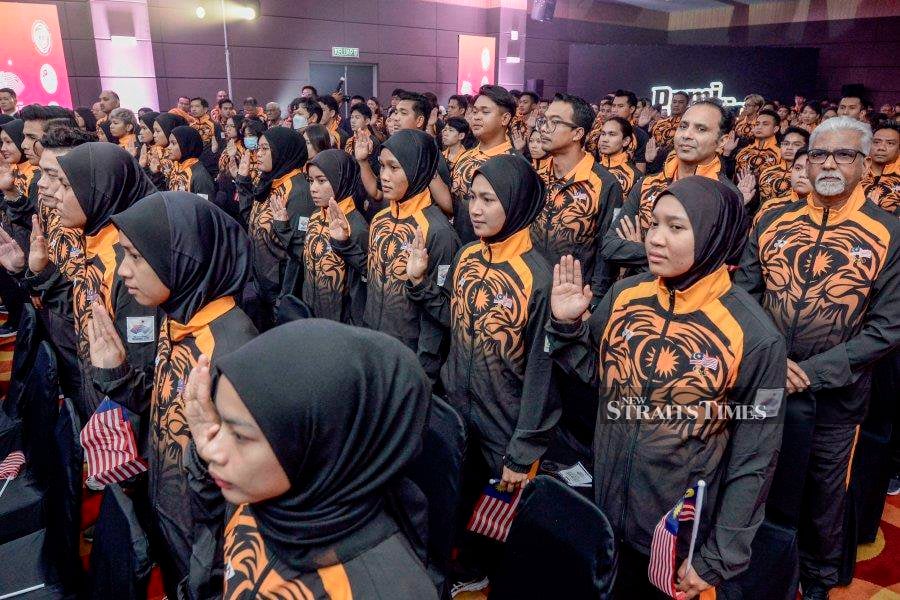Hangzhou Asian Games (globaltimes.cn)
Asian Games 2023: Overall medal table - complete list
On Saturday, the day of Autumn Equinox, one of the traditional Chinese solar terms, the 19th Asian Games opening ceremony

Hangzhou Asian Games expected to begin with spectacular opening ceremony
Delayed by a year due to coronavirus pandemic restrictions, the 19th edition of the event is set to officially begin on Saturday in the eastern Chinese city of Hangzhou with a two-hour opening ceremony.
Dating back to 1951, the Games are bigger than the Olympics when it comes to the number of athletes and sports – and this year’s competition is billed as the biggest in history.
Nearly 12,500 athletes – more than ever – from 45 countries and territories will be competing across 40 sports.
“It is really a pleasure to see that, after the three years of pandemic, the interest that has been generated for these Games,” said Vinod Kumar Tiwari, acting director general of the Olympic Council of Asia.
“Because these will be the first Games that will be held without any restrictions … for the first time after the pandemic.”
The Games will be held in 56 venues, 12 of which have been newly built. The programme includes the more traditional events, such as athletics and swimming but also those which reflect Asia’s diverse sporting culture, such as sepak takraw, or kick volleyball; kabaddi, a mixture of team tag and wrestling; and wushu, a martial art.
China, as the host country, has the privilege of choosing which sports to include in the programme, with bridge, chess and Xiangqi (Chinese chess) being among the non-Olympic events featured in the schedule. Meanwhile, e-sports, breakdancing and sport climbing will be making their Games debut, in an effort to attract the interest of younger people.
0 FIFA Online 4, Street Fighter V and League of Legends are among the seven e-sport medal events.
“Together, we will celebrate the beauty and diversity of e-sports,” said Wissam Trkmani, the project and operations manager at the Olympic Council of Asia, speaking at the Road to Asian Games opening ceremony in June.
“May the Road to Asian Games be a testament to the incredible achievements and unwavering dedication of e-sports athletes in Asia.”
India’s javelin thrower Neeraj Chopra [File: Denis Balibouse/Reuters] © Provided by Al Jazeera
The Games will see participants competing for 481 gold medals across 15 days.
India’s javelin thrower Neeraj Chopra is arguably the biggest star to look out for at the event. He won India’s first track-and-field Olympic gold medal at the Tokyo Olympics and became the world champion in August.
Chopra, who also won the Asian Games title in 2018, has 6.2 million fans on Instagram which makes him the most followed athletics star other than Usain Bolt who retired in 2017.
Qatar’s Mutaz Barshim is the Olympic high-jump champion and will go in search of a third Asian Games title after winning gold in both 2010 and 2014.
The star of the 2018 Asian Games, Riako Ikee, will also be one of the big names to watch as swimming takes centre stage in the first week of competition.
Ikee won six gold medals for Japan in the previous Asian Games hosted by Indonesia and became the first female athlete to be named the Asian Games MVP.
She was then diagnosed with leukaemia but fought back to qualify for the Tokyo Olympics.
Swimmer Zhang Yufei is one of China’s great hopes for a gold medal [File: Issei Kato/Reuters] © Provided by Al Jazeera
China, the Asian Games superpower
China has topped every Asian Games medal table since 1982 and is sending an 886-strong team to Hangzhou, including 13-year-old skateboarder Cui Chenxi and 60-year-old bridge player Dai Jianming.
“Be good hosts, conduct extensive friendly exchanges and demonstrate our country’s good image of reform and opening up, economic development, and social progress to Asian and international communities,” said China’s director of the National Sports Bureau, Gao Zhidan, at the team’s launch.
Gao also called for the athletes to “bring glory to the country, and fully demonstrate the immense power of China’s modern sports practice.”
Among China’s most likely medal hopefuls is swimmer Zhang Yufei.
The Olympic champion won the 100-metre butterfly at the world championships in Fukuoka earlier this year and will compete for up to seven golds in Hangzhou.
Her compatriot – 19-year-old rising star Pan Zhanle – is a favourite to win the 100-metre freestyle, having already lowered the Asian record twice in 2023.
The host nation is expected to dominate the diving events, as well as table tennis with two world number ones, Fan Zhendong and Sun Yingsha, both going for gold.
In badminton, fans will treated to two newly crowned world champions: Thailand’s Kunlavut Vitidsarn and An Seyoung of South Korea.
There is also great excitement for a potential clash between great cricket rivals India and Pakistan, after the former sent a team to the Asian Games for the first time.
The closing ceremony on October 8 will include the handover to Japan before the 2026 Aichi-Nagoya Games. Qatar will host the Asian Games in 2030.

Chinese President Xi Jinping will attend the opening ceremony of the highly expected 19th Asian Games to be in Hangzhou from Friday to Saturday and will hold a welcoming banquet and bilateral ...
 Hangzhou Asian Games a big day for the whole of Asia: Global Times editorial
Hangzhou Asian Games a big day for the whole of Asia: Global Times editorial
No one will doubt the level of organization and the splendor of the Hangzhou Asian Games.
Final Rehearsal for 19th Asian Games Opening Ceremony Held in Hangzhou
https://youtu.be/qsR9OML0u0w?si=OAafEY4L6fUTBPTN
When Hangzhou Asian Games meets Chinese culture Graphic: Deng Zijun/GT
When Hangzhou Asian Games meets Chinese culture Graphic: Deng Zijun/GT
When Hangzhou Asian Games meets Chinese culture Graphic: Deng Zijun/GT
When Hangzhou Asian Games meets Chinese culture Graphic: Deng Zijun/GT
When Hangzhou Asian Games meets Chinese culture Graphic: Deng Zijun/GT
When Hangzhou Asian Games meets Chinese culture Graphic: Deng Zijun/GTD




















 Happy together: Li gazing lovingly at Gan as she admires Li's gift to her for Valentine's Day.
Happy together: Li gazing lovingly at Gan as she admires Li's gift to her for Valentine's Day.
